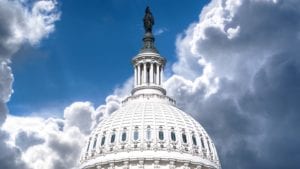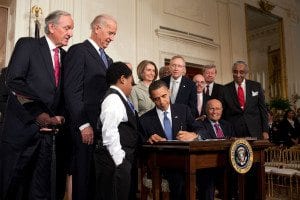“A lot of attention is being paid to the dueling decisions in two U.S. appeals courts about whether the U.S. government can provide tax credits to people in federal- as well as state-run insurance exchanges. In human terms, the stakes are high: Millions of moderate-income people will not be able to afford health coverage without a subsidy, and a court ruling could gut coverage expansion in the 36 states with federally run insurance exchanges, unless states decide to set up their own exchanges. One of the cases, Halbig v. Burwell, also adds uncertainty to the enrollment process set to begin this fall, when millions more people are expecting to get tax credits–and wondering if they may be taken away.
Amid the reaction, little attention has been paid to whether Americans will perceive Halbig as a legitimate legal question or as more inside-Washington politics. The plaintiffs paint this as a case about statutory language and intent. The health-care law said that tax credits would be provided only in state-run exchanges, they argue, and it is executive overreach to provide credits in federal exchanges. Proponents of the Affordable Care Act see this as a thinly veiled game of gotcha being played over imperfect legislative language despite clear legislative intent. They believe that providing tax credits in the exchanges was always a central element of the Affordable Care Act’s strategy to expand coverage whether in state or federal exchanges–and that everybody knows it.”
You are here:






